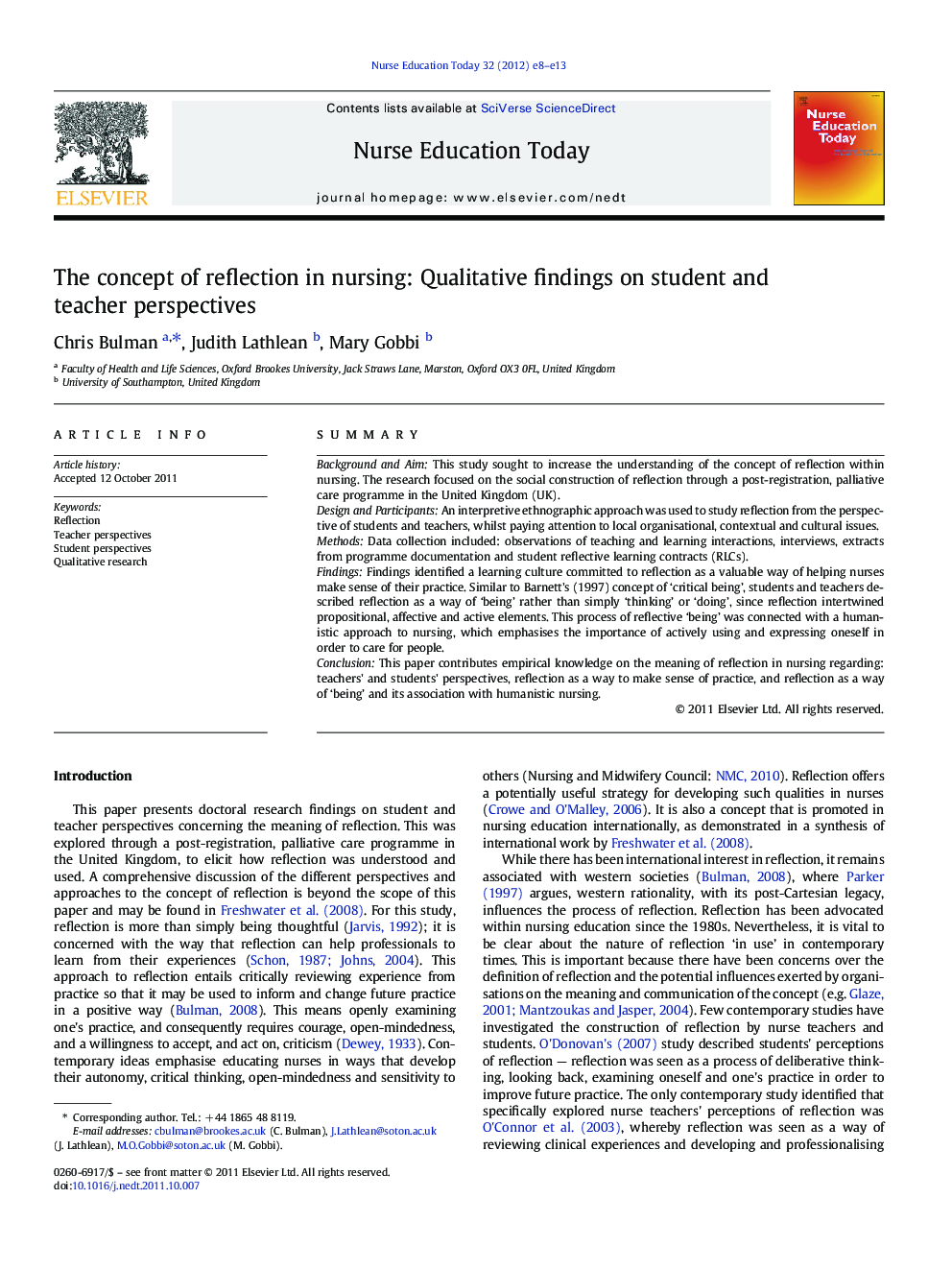| Article ID | Journal | Published Year | Pages | File Type |
|---|---|---|---|---|
| 368987 | Nurse Education Today | 2012 | 6 Pages |
SummaryBackground and AimThis study sought to increase the understanding of the concept of reflection within nursing. The research focused on the social construction of reflection through a post-registration, palliative care programme in the United Kingdom (UK).Design and ParticipantsAn interpretive ethnographic approach was used to study reflection from the perspective of students and teachers, whilst paying attention to local organisational, contextual and cultural issues.MethodsData collection included: observations of teaching and learning interactions, interviews, extracts from programme documentation and student reflective learning contracts (RLCs).FindingsFindings identified a learning culture committed to reflection as a valuable way of helping nurses make sense of their practice. Similar to Barnett's (1997) concept of ‘critical being’, students and teachers described reflection as a way of ‘being’ rather than simply ‘thinking’ or ‘doing’, since reflection intertwined propositional, affective and active elements. This process of reflective ‘being’ was connected with a humanistic approach to nursing, which emphasises the importance of actively using and expressing oneself in order to care for people.ConclusionThis paper contributes empirical knowledge on the meaning of reflection in nursing regarding: teachers' and students' perspectives, reflection as a way to make sense of practice, and reflection as a way of ‘being’ and its association with humanistic nursing.
